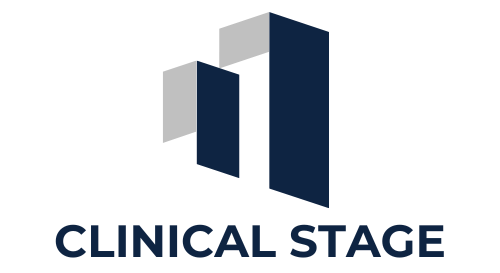Real-World Case Studies in Precision Medicine Trials
Precision medicine represents a transformative approach to healthcare, tailoring medical treatment to the individual characteristics of each patient. By considering factors such as genetics, environment, and lifestyle, precision medicine seeks to optimize therapeutic efficacy and minimize adverse effects. This approach contrasts with the traditional "one-size-fits-all" model, where treatments are designed for the average patient and may not account for individual variability.
The importance of case studies in understanding precision medicine trials cannot be overstated. They provide invaluable insights into the practical applications, challenges, and successes of this personalized approach to healthcare. Through these real-world examples, researchers and clinicians can learn about the methodologies and strategies that have proven effective, as well as those that require further refinement.
This blog will explore several case studies across different medical domains, highlighting the current state and future potential of precision medicine. We will delve into oncology, cardiovascular diseases, neurological disorders, and rare diseases, examining the unique challenges and opportunities in each area. Additionally, we will discuss methodological, regulatory, and ethical considerations, providing a comprehensive overview of the landscape of precision medicine trials.
Case Study: Oncology Trials
Overview of Precision Medicine in Oncology
Oncology has been at the forefront of precision medicine, largely due to the significant role of genetic mutations in cancer development and progression. Precision oncology involves the identification of specific genetic alterations in a patient's tumor, which can then inform the selection of targeted therapies. This approach aims to improve patient outcomes by tailoring treatment strategies to the molecular profile of each cancer.
Case Study 1: Targeted Therapy for a Specific Genetic Mutation
A notable example of precision medicine in oncology is the use of targeted therapy for non-small cell lung cancer (NSCLC) patients with an ALK (anaplastic lymphoma kinase) gene rearrangement. This genetic alteration leads to the production of an abnormal ALK protein that drives cancer cell growth. Crizotinib, a tyrosine kinase inhibitor, was developed to specifically target this protein, providing a more effective treatment option compared to traditional chemotherapy.
Clinical trials demonstrated that patients with ALK-positive NSCLC who received crizotinib experienced significantly longer progression-free survival and improved quality of life compared to those receiving standard chemotherapy. This case study underscores the potential of precision medicine to revolutionize cancer treatment by offering therapies tailored to the molecular characteristics of individual tumors.
Key Takeaways and Implications for Future Research
The success of crizotinib in treating ALK-positive NSCLC highlights the importance of genetic testing in the management of cancer patients. It also emphasizes the need for ongoing research to identify additional biomarkers that can predict response to targeted therapies. Future studies should focus on understanding resistance mechanisms to these therapies and developing combination strategies to overcome them.
Case Study: Cardiovascular Trials
Precision Medicine Approaches in Cardiovascular Research
Cardiovascular diseases (CVDs) represent a leading cause of morbidity and mortality worldwide. Traditional treatment approaches often fail to account for individual differences in genetic predisposition, disease progression, and response to therapy. Precision medicine in cardiology seeks to address these gaps by utilizing genomic, proteomic, and other molecular data to tailor interventions to individual patients.
Case Study 2: Genomic Markers for Personalized Treatment
A landmark study in the field of cardiovascular precision medicine involved the use of genetic testing to guide the use of statins in patients with hypercholesterolemia. Statins are commonly prescribed to lower cholesterol levels, but their efficacy and risk of side effects can vary significantly among individuals. Researchers identified specific genetic variants in the SLCO1B1 gene that influence statin metabolism and the risk of muscle-related side effects.
By incorporating genetic testing into clinical practice, physicians were able to tailor statin therapy to each patient's genetic profile, optimizing treatment efficacy and minimizing adverse effects. This approach not only improved patient outcomes but also demonstrated the potential of precision medicine to enhance the safety and effectiveness of widely used therapies.
Lessons Learned and Future Directions
The successful integration of genomic data into cardiovascular care underscores the importance of genetic testing in personalizing treatment plans. Future research should aim to identify additional genetic and non-genetic factors that influence the risk and treatment response in CVDs. Moreover, the development of predictive models that integrate multiple data types, including clinical, genetic, and lifestyle factors, will be crucial in advancing precision cardiology.
Case Study: Neurological Disorders
Application of Precision Medicine in Neurology
Neurological disorders, including neurodegenerative diseases like Alzheimer's and Parkinson's, present unique challenges in terms of diagnosis and treatment. The complex and multifactorial nature of these conditions often complicates the identification of effective therapies. Precision medicine in neurology aims to address these challenges by leveraging genetic, biomarker, and imaging data to tailor interventions to individual patients.
Case Study 3: Personalized Treatment for Neurodegenerative Diseases
One of the most promising applications of precision medicine in neurology is the use of biomarkers to guide treatment decisions in Alzheimer's disease (AD). Researchers have identified several biomarkers, including amyloid-beta and tau proteins, that are associated with the pathophysiology of AD. These biomarkers can be measured using cerebrospinal fluid analysis or positron emission tomography (PET) imaging.
In clinical trials, the use of these biomarkers has enabled the stratification of patients into subgroups based on their likelihood of responding to specific treatments. For example, patients with high levels of amyloid-beta and tau may be more likely to benefit from anti-amyloid therapies. This stratification allows for more targeted and potentially more effective interventions, as well as the early identification of patients who are unlikely to respond to certain treatments.
Impact on Patient Outcomes and Clinical Practice
The incorporation of biomarker data into the management of neurodegenerative diseases has the potential to transform clinical practice. By identifying patients at an early stage of disease who are likely to benefit from specific therapies, precision medicine can improve patient outcomes and reduce healthcare costs. Additionally, the use of biomarkers in clinical trials can help to accelerate the development of new treatments by enabling the selection of more homogeneous patient populations.
Case Study: Rare Diseases
Challenges and Opportunities in Rare Disease Trials
Rare diseases, defined as conditions affecting fewer than 200,000 people in the United States, pose unique challenges for clinical research and drug development. The rarity of these conditions often leads to limited understanding of their natural history and a lack of established treatment guidelines. Precision medicine offers new opportunities for addressing these challenges by leveraging genetic and molecular data to develop targeted therapies.
Case Study 4: Precision Medicine for a Rare Genetic Disorder
A compelling example of precision medicine in rare diseases is the development of enzyme replacement therapy for patients with Fabry disease, a rare genetic disorder caused by mutations in the GLA gene. These mutations result in deficient activity of the enzyme alpha-galactosidase A, leading to the accumulation of harmful substances in various organs.
Researchers developed a recombinant form of the enzyme, which can be administered to patients to replace the deficient enzyme activity. Clinical trials demonstrated significant improvements in clinical outcomes, including reduced organ damage and improved quality of life for patients receiving the therapy. This case study highlights the potential of precision medicine to provide life-changing treatments for patients with rare diseases.
Implications for Drug Development and Approval
The successful development of enzyme replacement therapy for Fabry disease illustrates the importance of understanding the genetic basis of rare diseases. It also underscores the need for regulatory frameworks that facilitate the development and approval of therapies for small patient populations. The use of biomarkers and surrogate endpoints in clinical trials can help to accelerate the evaluation of new treatments, providing patients with timely access to potentially life-saving therapies.
Methodological Considerations in Precision Medicine Trials
Study Design and Patient Stratification
The design of precision medicine trials presents unique challenges, particularly in terms of patient stratification. Identifying appropriate biomarkers and genetic variants that can predict treatment response is critical for defining patient subgroups. This stratification not only enhances the precision of clinical trials but also increases the likelihood of demonstrating treatment efficacy.
Biomarker Identification and Validation
The identification and validation of biomarkers are central to the success of precision medicine trials. This process involves rigorous testing to ensure that the biomarkers are reliable indicators of disease progression or treatment response. Once validated, biomarkers can be used to select patients for clinical trials, monitor treatment efficacy, and guide therapeutic decisions.
Data Management and Analysis Strategies
Precision medicine trials generate vast amounts of data, including genomic, proteomic, and clinical information. Effective data management and analysis strategies are essential for extracting meaningful insights from this data. Advanced computational tools and machine learning algorithms can help to identify patterns and correlations that may not be apparent through traditional analysis methods.
Regulatory and Ethical Considerations
Regulatory Frameworks for Precision Medicine Trials
Regulatory frameworks play a crucial role in the development and approval of precision medicine therapies. Regulatory agencies, such as the U.S. Food and Drug Administration (FDA), have established guidelines for the evaluation of biomarkers and the approval of targeted therapies. These guidelines emphasize the importance of demonstrating clinical benefit and ensuring patient safety.
Ethical Issues in Personalized Treatment Approaches
The use of genetic and biomarker data in precision medicine raises several ethical issues. For example, there are concerns about genetic privacy and the potential for discrimination based on genetic information. Additionally, the stratification of patients based on genetic or biomarker data can raise questions about equity and access to treatment.
Ensuring Patient Safety and Informed Consent
Ensuring patient safety is paramount in precision medicine trials. This includes not only monitoring for adverse effects but also ensuring that patients fully understand the potential risks and benefits of participating in a trial. Informed consent processes should be thorough and transparent, providing patients with all the information they need to make informed decisions about their participation.
Future Directions in Precision Medicine Trials
Emerging Technologies and Their Impact on Precision Medicine
Emerging technologies, such as next-generation sequencing (NGS) and CRISPR-based gene editing, are poised to revolutionize precision medicine. NGS allows for the rapid sequencing of entire genomes, enabling the identification of genetic variants associated with disease susceptibility and treatment response. CRISPR-based gene editing offers the potential to correct genetic mutations at their source, providing a new avenue for the treatment of genetic disorders. Additionally, advancements in bioinformatics and artificial intelligence are enhancing our ability to analyze complex datasets, leading to more precise and individualized treatment strategies.
Collaboration and Data Sharing in Precision Medicine Research
Collaboration and data sharing are critical to advancing precision medicine. The complexity of precision medicine trials often requires interdisciplinary collaboration, bringing together experts in genomics, bioinformatics, clinical research, and other fields. Moreover, sharing data across institutions and countries can accelerate the identification of new biomarkers and therapeutic targets. Initiatives like the Global Alliance for Genomics and Health (GA4GH) are working to establish frameworks for responsible data sharing, ensuring that patient privacy is protected while maximizing the potential for scientific discovery.
Future Challenges and Opportunities in Precision Medicine
Despite its promise, precision medicine faces several challenges. One significant challenge is the integration of precision medicine into standard clinical practice. This requires not only the development of robust clinical guidelines but also the training of healthcare providers in the interpretation and use of genetic and biomarker data. Additionally, there is a need for more research into the cost-effectiveness of precision medicine approaches, as these therapies can be expensive and resource-intensive.
Another challenge is ensuring equitable access to precision medicine. The benefits of precision medicine must be accessible to all populations, regardless of socioeconomic status or geographic location. This requires addressing disparities in healthcare access and investing in infrastructure to support the widespread implementation of precision medicine.
Notable Labs’ Role in Precision Medicine Trials
Notable Labs stands at the forefront of precision medicine, focusing on transforming healthcare by tailoring medical treatments to the individual characteristics of each patient. Their innovative approach considers genetics, environment, and lifestyle factors to optimize therapeutic efficacy and minimize adverse effects. In contrast to the traditional "one-size-fits-all" model, Notable Labs' methodologies emphasize personalized care, addressing the unique needs of each patient.
Their work is highlighted in the blog "Real-World Case Studies in Precision Medicine Trials," which explores various medical domains, including oncology, cardiovascular diseases, neurological disorders, and rare diseases. By leveraging case studies, Notable Labs provides invaluable insights into the practical applications, challenges, and successes of precision medicine. These real-world examples offer a comprehensive overview of the methodologies and strategies that have proven effective, and they highlight areas requiring further refinement.
Through their research and case studies, Notable Labs underscores the transformative potential of precision medicine, illustrating how tailored treatments can lead to improved patient outcomes and reduced adverse effects. They are committed to advancing clinical research and patient care, ensuring that the benefits of precision medicine are realized for all patients.
Conclusion
The case studies presented in this blog illustrate the transformative potential of precision medicine across various medical domains, including oncology, cardiovascular diseases, neurological disorders, and rare diseases. By tailoring treatment strategies to the unique characteristics of each patient, precision medicine offers the promise of improved outcomes and reduced adverse effects. The integration of genetic, biomarker, and other molecular data into clinical decision-making represents a paradigm shift in healthcare, moving from a one-size-fits-all approach to a more personalized model of care.
As we look to the future, the continued advancement of precision medicine will depend on overcoming several key challenges, including the integration of new technologies, the development of robust regulatory and ethical frameworks, and ensuring equitable access to personalized therapies. Collaboration and data sharing will be essential in addressing these challenges, enabling the rapid dissemination of knowledge and the development of innovative treatment strategies.
In conclusion, precision medicine represents a frontier in clinical research and patient care, offering new hope for patients with a wide range of conditions. The insights gained from real-world case studies and clinical trials will continue to shape the future of medicine, leading to more effective and individualized treatments. As the field evolves, it is essential to remain committed to the principles of patient-centered care, ethical practice, and scientific rigor, ensuring that the promise of precision medicine is realized for all patients.










